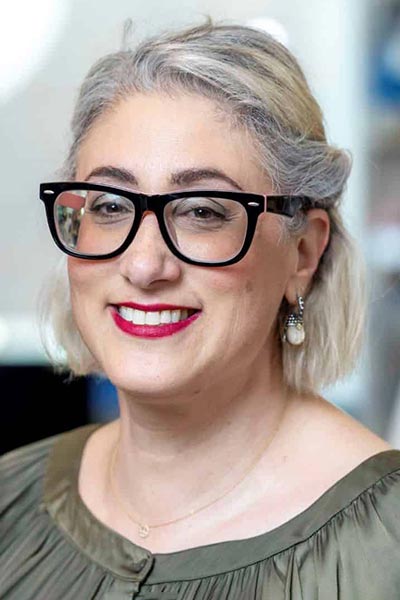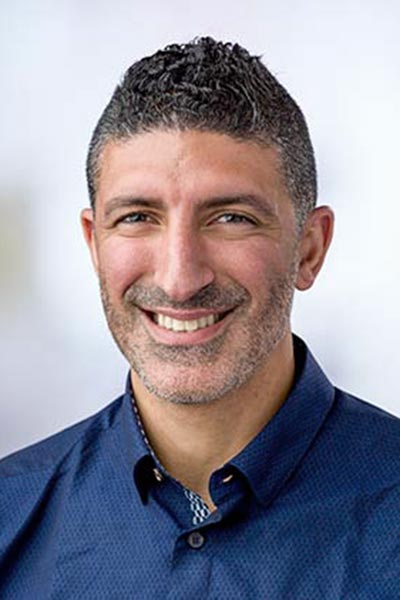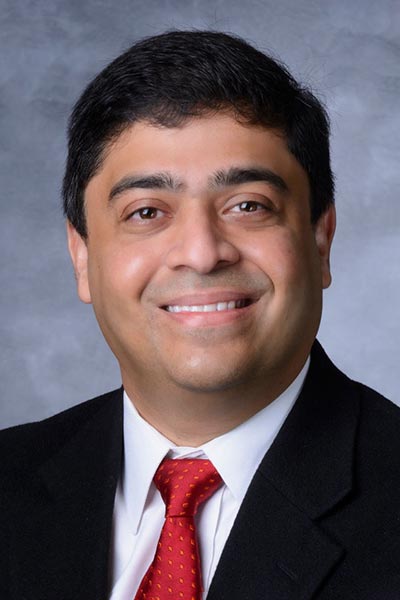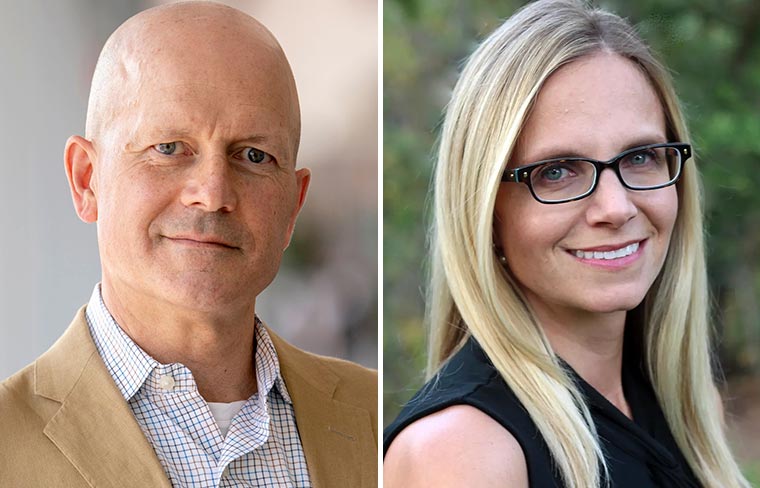Daily plenary sessions to explore major topics in cancer research—tumor ecosystems, metastasis, artificial intelligence
The American Association for Cancer Research Annual Meeting 2024 will feature four plenary sessions from Monday, April 8, to Wednesday, April 10, in addition to two weekend sessions on April 6 and 7. The weekday plenary sessions will cover some of the most compelling and important topics in cancer research currently.
Take a closer look at the plenary sessions below, and find the most up-to-date presentation details in the Annual Meeting app and online program planner.
Profiling Tumor Ecosystems in Native Tissue Context
Monday, April 8, 8 – 10 a.m. PT
Hall GH, Ground Level, Convention Center
Studying the tumor ecosystem is essential to understanding how to develop new therapies that target vulnerabilities within the system. The session features speakers and topics with diverse approaches to tumor ecosystem research, including spatial profiling of microenvironments and organ systems.

Christine A. Iacobuzio-Donahue, MD, PhD, Memorial Sloan Kettering Cancer Center, is chair of the session.
“The presentations are all distinctive,” Iacobuzio-Donahue said. “They span different scales of the ecosystem.”
- Michael Angelo, MD, PhD, Stanford University, will present on spatial encoding of the immune response and clinical outcome in the breast cancer tumor microenvironment.
- Susan Bullman, PhD, Fred Hutchinson Cancer Center, will look at the tumor ecosystem from microniches to single cells, with a focus on understanding the impact of intratumoral microbes on spatial and cellular heterogeneity in cancer.
- Joakim Lundeberg, PhD, Science for Life Laboratory, KTH Royal Institute of Technology, Stockholm, Sweden, will discuss deconvoluting the cancer ecosystem into its spatial components, with a focus on breast and prostate cancer.
- Peter K. Sorger, PhD, Harvard Medical School, will present on dissecting plasticity in tumor cell states and immuno-phenotypes in primary melanoma using 3-D spatial profiling.
Evolution of the Genome, Microenvironment, and Host through Metastasis
Tuesday, April 9, 8 – 10 a.m. PT
Hall GH, Ground Level, Convention Center

Tuesday’s plenary session spotlights evolution at multiple scales — from the genome, to the tumor microenvironment, to the host — over the course of cancer metastasis. Cyrus M. Ghajar, PhD, Fred Hutch Cancer Center, is chair of the session and will provide introductions and closing remarks.
- Christoph A. Klein, MD, University of Regensburg, Germany, will offer insights into the invisible phase of systemic cancer, specifically the genomic evolution and phenotypic plasticity of the metastatic seed.
- Dana Pe’er, PhD, Memorial Sloan Kettering Cancer Center, will provide a computational biology perspective on charting the power of plasticity during metastasis.
- Sarah-Maria Fendt, PhD, VIB-KU Leuven Center for Cancer Biology, Belgium, will present on the role of metabolite signaling over the course of cancer metastasis, and potential metabolic vulnerabilities.
- David C. Lyden, MD, PhD, Weill Cornell Medicine, will reveal how the systemic nature of metastasis underlies its lethality, and how multiorgan therapies may lead to effective anti-metastatic treatments.
AI at the Interface: Accelerating Evidence Generation, Advancing Disparities Research, and Improving Trial Design
Wednesday, April 10, 8 – 10 a.m. PT
Ballroom 20, Upper Level, Convention Center

This session will delve into the transformative impact of artificial intelligence (AI) at the interface of health care and research, focusing on three crucial areas: radiology and radiomics, pathology in radiology with a disparities emphasis, and AI applications in drug discovery/development and diagnostics. Chair Vivek Subbiah, MD, Sarah Cannon Research Institute, will provide an introduction and wrap-up at the conclusion.
Subbiah said the dynamic landscape of AI and oncology is evolving.
“This plenary session not only sheds light on the incredible strides we’ve made but also opens doors to future transformative research in this critical intersection,” he said. “As we navigate the intricate realms of artificial intelligence and oncological advancements, this session serves as a beacon, guiding us toward unparalleled breakthroughs and pioneering solutions for the challenges that lie ahead.”
- Maryellen L. Giger, PhD, University of Chicago, will discuss AI in medical imaging, data science, and health disparities.
- Anant Madabhushi, PhD, Emory Winship Cancer Institute, will present on integrating AI, radiology, and pathology for affordable and equitable precision medicine.
- Thomas Clozel, MD, Owkin, Geneva, Switzerland, will give insights on AI and its use in precision drug development and discovery, and how data informs his research approach.
- Mia A. Levy, MD, PhD, Foundation Medicine, Inc., will discuss using real-world data for AI-generated biomarkers.

AACR Annual Meeting 2024 Highlights: Vision for the Future
Wednesday, April 10, 12 – 1:30 p.m. PT
Ballroom 20, Upper Level, Convention Center
The Annual Meeting will wrap up with the closing plenary, which will feature program highlights from the six days of the meeting. Christina Curtis, PhD, MSc, Stanford University, and Keith T. Flaherty, MD, FAACR, Massachusetts General Hospital Cancer Center, are chairs for the session. Visit the online planner for updated information on the closing plenary.
- Mikala Egeblad, PhD, Johns Hopkins University, will discuss topics presented during the Annual Meeting related to basic cancer science and translational research.
- Melissa A. Simon, MD, MPH, Northwestern Medicine, will present on topics discussed at the Annual Meeting that relate to prevention, early detection, population sciences, and prevention research.
- Ryan B. Corcoran, MD, PhD, Massachusetts General Hospital, will highlight topics presented at the Annual Meeting related to clinical research and clinical trials.
More from the AACR Annual Meeting 2025
View a photo gallery of scenes from Chicago, continue the conversation on social media using the hashtag #AACR25, and read more coverage in AACR Annual Meeting News.

